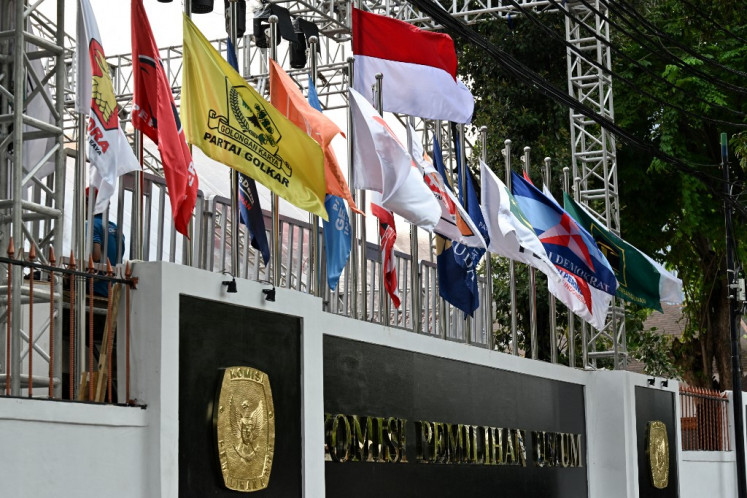Popular Reads
Top Results
Can't find what you're looking for?
View all search resultsPopular Reads
Top Results
Can't find what you're looking for?
View all search resultsPPATK urges Singapore to take S$10,000 note out of circulation
Agus Santoso
Change text size
Gift Premium Articles
to Anyone
Agus Santoso. Tribunnews.com
The Financial Transaction Reports and Analysis Centre (PPATK) has urged Singaporean authorities to withdraw all S$10,000 (US$8,025) banknotes following its pledge to discontinue printing. The call comes as part of the center's effort to strengthen anti-money laundering controls in Indonesia.
PPATK deputy chairman Agus Santoso said Sunday that the stoppage in printing would 'meaningfully' help Indonesia curb rampant corruption and money-laundering activities, but that withdrawing or imposing a new expiration date on the bank notes would be more effective.
'If the bill remained on the market, let's say until five to 10 years after its production stops, Indonesia would still be vulnerable to money laundering and graft,' Agus said.
Starting on Oct. 1 this year, Singapore is expected to stop issuing S$10,000 notes, one of the world's most valuable banknotes. However, those S$10,000 already in circulation will remain legal tender indefinitely.
The Monetary Authority of Singapore (MAS) deputy managing director Ong Chong Tee said that the discontinuation of the S$10,000 note was unlikely to cause headaches.
'The development of more advanced and secure electronic payment systems has reduced the need for large value cash-based transactions,' he said in a speech at a financial crime seminar.
Responding to Ong's concern, Agus added said that for organized criminals, high-value notes came in handy because they were lighter and easier to carry in large quantities.
'The S$10,000 banknote, which is not widely used in Singapore on a daily basis as legal tender, is the bill-of-choice for bribe payers or graft suspects because they can exchange a large amount of rupiah for just a few bank notes,' Agus said.
The most valuable bank note in Indonesia is the Rp 100,000 ($8.42), while a S$10,000 bill is equal to Rp 95 million.
In Indonesian rupiah, a Rp 3 billion bribe is equal to 30,000 Rp 100,000 banknotes, while such a bribe in Singapore dollars would require just 31 S$10,000 banknotes.
In almost every arrest of graft suspects, the Corruption Eradication Commission (KPK) has seized S$10,000 bills.
'In addition to its lightness, the value of the banknote is also stable,' KPK deputy chairman Bambang Widjojanto said.
In the recent arrest of Papua's Biak Numfor Regent Yesaya Sombuk, who was apprehended at a hotel in Jakarta on June 17 after allegedly accepting S$100,000 in bribes from a businessman, the KPK found six S$10,000 notes.
Earlier, the KPK also confiscated several S$10,000 bills during the arrest of former Constitutional Court chief justice Akil Mochtar and former head of Upstream Oil and Gas Regulatory Special Task Force (SKKMigas) Rudi Rubiandini, who have since each been sentenced to life in prison for graft and money laundering.
In the raid on Akil in October 2013, KPK investigators seized S$284,050 and $22,000. On Aug. 13, 2013, as much as $490,000 and S$127,000 were seized from Rudi's house in Jakarta.
Despite its pledge to stop printing S$10,000 notes, Singapore will continue to print the S$1,000 bill, which is also considered one of the world's most valuable banknotes.
By comparison, the highest-value denomination in the United States is $100. One US dollar is equal to S$1.2.
' JP/Haeril Halim










